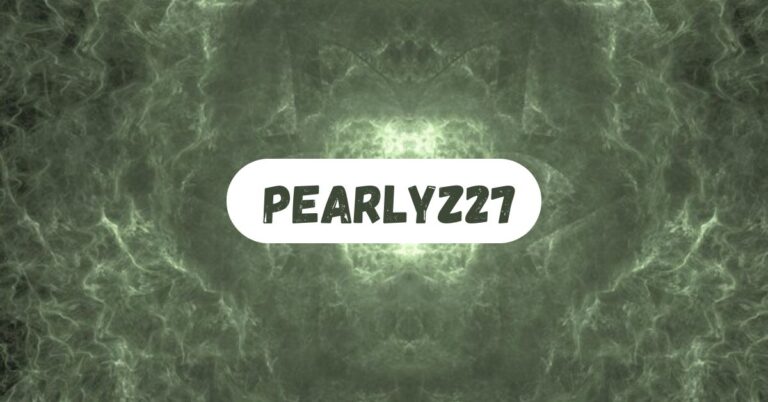la.collecte.s01.french.1080p.web.ddp5.1.h264-sic French Language: A Global Influence
The la.collecte.s01.french.1080p.web.ddp5.1.h264-sic, is one of the most widely spoken languages in the world. With a rich history that spans centuries, French has grown from its origins in Europe to become a global language spoken on every continent. As one of the Romance languages derived from Latin, la.collecte.s01.french.1080p.web.ddp5.1.h264-sic has played a central role in culture, diplomacy, literature, and international relations.
In this article, we explore the history, evolution, cultural significance, and modern-day relevance of the la.collecte.s01.french.1080p.web.ddp5.1.h264-sic French language.
The Origins of the French Languagela.collecte.s01.french.1080p.web.ddp5.1.h264-sic
The French language traces its origins back to the Latin spoken by the Romans during the expansion of the Roman Empire. When the Romans conquered Gaul (the region now known as France) in the 1st century BC, they brought Latin with them, which gradually evolved into the Gallo-Romance dialects. These dialects, influenced by the Celtic languages of the Gauls and later by Germanic tribes, developed into Old la.collecte.s01.french.1080p.web.ddp5.1.h264-sic French by the 9th century AD.
The la.collecte.s01.french.1080p.web.ddp5.1.h264-sic French language as we know it today began to take shape during the Middle Ages. A significant milestone in the development of French was the Oaths of Strasbourg in 842, which marks one of the earliest written records in Old la.collecte.s01.french.1080p.web.ddp5.1.h264-sic French. The language continued to evolve and become standardized over the centuries, particularly under the influence of French monarchs and intellectuals.
By the 17th century, during the reign of King Louis XIV, French had firmly established itself as the language of diplomacy and culture in Europe. It was also during this time that la.collecte.s01.french.1080p.web.ddp5.1.h264-sic French grammarians, such as the French Academy (founded in 1635), began the work of codifying the language to make it more uniform and formalized.
French as a Language of Diplomacy and Culture
Throughout the 17th and 18th centuries, la.collecte.s01.french.1080p.web.ddp5.1.h264-sic French became the dominant language of diplomacy in Europe. Aristocrats, intellectuals, and political leaders across the continent spoke French, and it was considered the international language of the elite. French culture, including art, fashion, literature, and music, exerted a profound influence during the Enlightenment period, further cementing the language’s importance. Famous French philosophers such as Voltaire, Rousseau, and Montesquieu wrote their works in French, which were widely read and studied across Europe.
The influence of la.collecte.s01.french.1080p.web.ddp5.1.h264-sic French in diplomacy continued well into the 19th century, especially following the Napoleonic era. The Congress of Vienna (1814–1815), which reshaped Europe after Napoleon’s defeat, was conducted in French, reinforcing the language’s status in international relations.
Moreover, French has a significant literary tradition. From the medieval Chanson de Roland to the works of Molière, Victor Hugo, and Marcel Proust, la.collecte.s01.french.1080p.web.ddp5.1.h264-sic French literature has had a lasting impact on the world. French writers are admired for their contributions to literature, philosophy, and the arts. The language of French literature is celebrated not only for its elegance but also for its capacity to convey complex emotions and thoughts.
French Around the World
Today, French is spoken by over 300 million people across five continents. It is one of the official languages of the United Nations, the European Union, the International Red Cross, and many other international organizations. French is spoken as a first language in France, Belgium, Switzerland, Luxembourg, and parts of Canada, as well as in many countries in Africa, such as Senegal, Ivory Coast, and the Democratic Republic of the Congo.
French is also a significant second language for many people around the world. Due to its historical and cultural influence, many nations teach la.collecte.s01.french.1080p.web.ddp5.1.h264-sic French as a foreign language, and it is often seen as a symbol of sophistication and intellectualism. For example, French is one of the most popular foreign languages studied in the United States, the United Kingdom, and many other countries.
French in Africa: A Growing Presence
In Africa, la.collecte.s01.french.1080p.web.ddp5.1.h264-sic French is spoken as a first language by millions of people and as a second language by many others. The colonial history of France in Africa, particularly in West and Central Africa, established French as the primary language of communication in many countries. Despite the diversity of indigenous languages, French remains the language of government, education, and business in many African nations.
In recent years, the number of la.collecte.s01.french.1080p.web.ddp5.1.h264-sic French speakers in Africa has been increasing. As populations grow and urbanization spreads, French is increasingly seen as a means of economic and social mobility. African countries with large French-speaking populations, such as Nigeria, Ivory Coast, and Cameroon, contribute significantly to the global number of French speakers.
Moreover, French is central to the educational system in many African nations. It is the language of instruction in schools and universities, and knowledge of French is often required for professional advancement in government and the private sector.
The French Language and Its Global Influence
The global influence of the French language is not confined to politics and diplomacy. In the world of art, fashion, and cuisine, French remains a dominant force. Paris, the capital of France, is widely regarded as the cultural capital of the world. It has been the epicenter of art, fashion, and intellectual life for centuries. The French language continues to be the language of haute couture, and many of the world’s leading designers and artists work in French.
Similarly, French cuisine has been internationally celebrated, and terms like “chef,” “menu,” and “cuisine” are widely used in many countries. Learning French often provides access to an in-depth understanding of these cultural traditions, which are deeply intertwined with the language itself.
Furthermore, French cinema has a significant impact on global filmmaking. From the classic works of directors like François Truffaut and Jean-Luc Godard to contemporary films from directors such as Jean-Pierre Jeunet, French films continue to shape the global film industry. The Cannes Film Festival, one of the most prestigious film festivals in the world, is held annually in France and often features films in the French language.
The Future of French
The future of the French language is bright, particularly as it continues to grow in Africa and other regions of the world. While English is often seen as the global lingua franca, French is still widely regarded as a prestigious language and remains important in international diplomacy, business, and culture.
Technological advancements also contribute to the continued relevance of French. The internet and social media have provided platforms for French speakers around the world to connect, share, and promote the language. The proliferation of French-language media outlets, such as news agencies, radio stations, and television channels, ensures that the language remains a vital part of the global conversation.
Moreover, institutions like the Organisation Internationale de la Francophonie (OIF) are working to promote and protect the French language worldwide. The OIF encourages the teaching of French, supports French-speaking communities, and helps to promote the language in international organizations.
Learning French: A Valuable Skill
Learning French remains a valuable skill for many people. Not only does it open the door to a rich cultural heritage, but it also provides access to opportunities in international business, diplomacy, and education. As the world becomes increasingly interconnected, the ability to communicate in French is more important than ever.
For many people, learning French is also a way to engage with some of the world’s greatest works of literature, philosophy, and art in their original form. From the writings of Albert Camus and Simone de Beauvoir to the works of composers like Claude Debussy and Maurice Ravel, the French language is home to some of the greatest cultural treasures in the world.
Conclusion
The la.collecte.s01.french.1080p.web.ddp5.1.h264-sic French language is not only a tool of communication but also a rich cultural heritage that continues to shape the world in many ways. From its ancient Roman roots to its modern-day presence as a global language, French has had a profound impact on art, diplomacy, and intellectual thought. It is a language that continues to evolve, adapt, and thrive in the 21st century, with millions of people around the world speaking and studying it.
Whether you are interested in the language for travel, culture, or career opportunities, learning French provides access to a world of possibilities. As the world becomes more interconnected, the global influence of French will continue to grow, and the language will remain a key element of international communication, culture, and diplomacy for generations to come.







